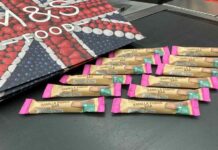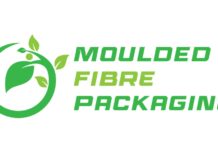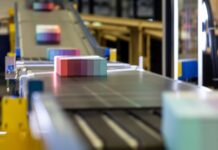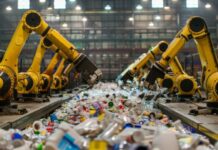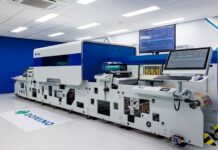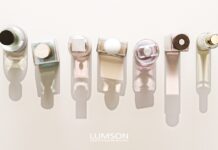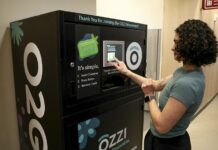Sustainable packaging is developing at a rapid pace, using materials like waste plastic and seaweed paper. Here are our top picks for businesses that are pushing the envelope.
For FMCG, using sustainable packaging is becoming more important. According to a study conducted in spring by Aquapak Polymers, an astounding 92% of industry experts in packaging want to discontinue using plastic in consumer packaging over the next five years. Meanwhile, the majority of FMCG businesses ranked packaging as a top priority in their sustainability ambitions, according to a recent survey conducted by independent recyclability expert OPRL.
In a recent webinar, 90 businesses participated in a survey, and 57.7% of them identified reducing plastic use as a primary sustainability aim. Increased recycled content was highlighted by 56.6% of respondents, who came in second.
According to Jude Allan, interim MD at OPRL, “this feedback shows that reforms like the plastic packaging tax and extended producer responsibility (EPR) for packaging are already having an impact on design.” For instance, reducing plastic use will assist companies in cutting expenses in accordance with both laws.
The need to reduce plastic is expressing itself in a number of ways. Certain businesses are considering using substitute materials, such as paper. This is seen in the recently introduced recyclable Pot Noodle cups and Pringles tubes. More creative entrepreneurs are packaging anything from seaweed to obsolete marine equipment.
Some aim to reduce the weight of their current materials or eliminate single-use materials entirely via the implementation of refill programs.
According to John Macdonald, design director at design and innovation firm Matter, they see some brands—typically challengers—reducing packaging and product delivery to exquisitely simple and lightweight solutions. This is impacting design, which is moving away from the conventional all-singing, all-dancing packs seen on store shelves and toward something more akin to an upscale home goods item.
According to him, this might be impacted by the new look that sets the reuse and refill brands apart. Take Wilton detergent and Fussy deodorant, for instance.
More changes to the pack design are probably in the works. EPR will mandate recycling labeling on packaging starting in 2026 in an effort to promote improved recycling practices among customers. That will have effects that go beyond just labeling a pack.
According to Zoe Brimelow, brand director of consultancy Duo UK, they anticipate a more coordinated push towards label simplification to improve customer awareness and more investment in innovation to assist speed design changes and save waste.
The path the packaging business is heading gives her hope. According to Brimelow, a number of items have seen an increase in visibility in the last year due to consumers’ growing curiosity in the origin of recycled materials. Companies are excited to interact with final customers. This goes beyond just stating their environmental initiatives; it also involves crafting a backstory for the recycled packaging and explaining how the product was made.
Here are a few of those tales from five packaging firms that are setting new standards both inside and outside of the UK.
1- The Sustainable Bottling Co
The second-largest source of plastic pollution in the world right now is the soft drink and water industries. It produces more than 600 billion plastic bottles annually; in the next 30 years, this amount is predicted to quadruple.
Now for The Sustainable Bottling Co., which was started in early 2024 by Melvin Jay, the creator of the soda brand Gunna Drinks, which is known for its anti-plastic crusade. The Sustainable Bottling Co., situated close to Leicester, is the first manufacturing plant in Europe with the ability to package flavor-infused beverages into environmentally friendly aluminum bottles.
In addition to packaging Gunna’s own lemonades, the business will provide white label aluminum packaging to other businesses in the sector. Perhaps unexpectedly, putting beverages into aluminum bottles requires extremely specialized equipment. As a result, Jay explains that the opening of our 8,000 square foot facility necessitated a £1 million investment in brand-new manufacturing lines.
The business is already seeing positive sales rates for their aluminum bottles, which combine the essential sip-and-reseal ease of a bottle with all the environmentally beneficial qualities of an aluminum can. According to Jay, they are aware that many customers like to buy more sustainably, but the absence of suitable substitute packaging prevents them from doing so.
2- Aquapak Polymers
The scientists at Aquapak, located in Birmingham, devoted ten years to creating Hydropol, an eco-friendly polymer that offers a soluble, non-toxic, and marine-safe substitute for conventional plastics. Up to now, it has been used to package a wide range of goods, including home and personal care items, chocolate, and candies.
However, the most well-known innovation occurred earlier this year when Hydropol was used to produce the first crisp bag in the UK that could be recycled entirely at the curbside.
The British Snack Co. and the Ukrainian packaging converter Evopak collaborated to launch the packs, which do away with the conventional multi-layered plastic and metallized film combination that makes crisp packets difficult to recycle.
Rather, Hydropol’s ability to keep the crisps free of moisture and oxygen is what keeps them crispy and fresh.
3- ZeroCircle
The use of seaweed as a climate solution has grown in the last few years, according to Neha Jain, the MD and founder of Zerocircle, a company that uses the material to make sustainable substitutes for paper and plastic.
Its range of seaweed-based products includes wood-free, food-safe seaweed paper, greaseproof barrier coatings for use in food packaging, and thin films that may replace a number of single-use flexible plastic applications.
Zerocircle was established and is headquartered in India, where 97% of the world’s seaweed is now produced. The company currently works with a number of UK and EU firms who are looking for sustainable alternatives.
4- Sonoco
Packaging specialists had a challenging task when it came to the Pringles tube. Because of the many layers needed, it was really believed to be very difficult to create a recyclable version.
However, packaging specialist Sonoco, located in South Carolina, offered a solution earlier this year.
The new tube, which was created in collaboration with Kellanova, the owner of Pringles, is 90% paper-based, making it kerbside recyclable. It was first introduced at Tesco and One Stop shops in the UK, and it has now spread to Belgium and the Netherlands.
According to Seàn Cairns, president of rigid paper and closures globally for Sonoco Consumer Europe, the primary challenge was changing the tube’s bottom material from metal to paper. Despite the seemingly straightforward alteration, there were intricate chemical and technological factors involved in the procedure.
5- Mondini
In the fresh meat aisle, shelf appeal and pack performance are crucial, but the vacuum skin pack (VSP), a conventional tray-and-film combination, raises certain sustainability concerns.
With its PaperSeal Skin, Italian packaging manufacturer G Mondini has developed a response. The Paperseal Skin tray, created in collaboration with Graphic Packaging, offers up to 90% less plastic than VSP while preserving pack performance advantages including a possible 28-day shelf life.
According to G Mondini UK MD Ross Layton, it allows us to help our customers dramatically reduce their plastic use while maintaining the highest pack quality and integrity.






